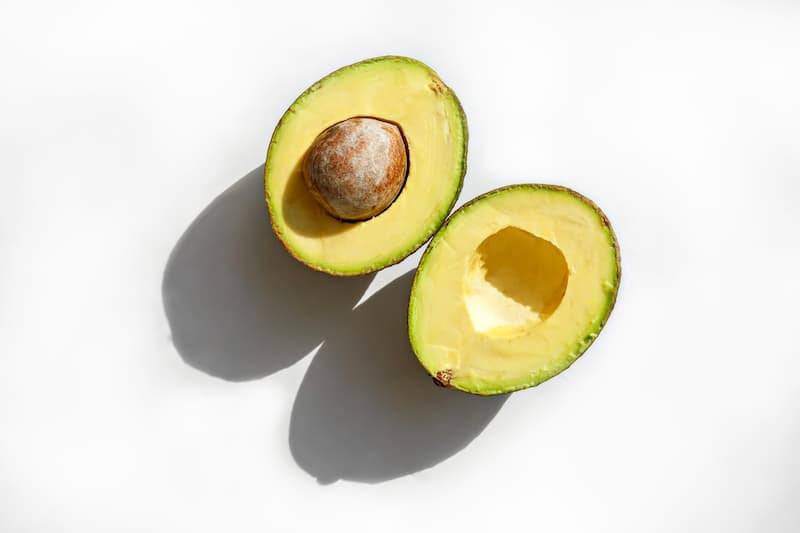
Just How Dangerous Is High Cholesterol?
We have quite a simplistic view of cholesterol when it comes to our health. More cholesterol equals bad, right? Well, some kinds of cholesterol are actually good for us. For example, HDL (High Density Lipoprotein) cholesterol helps transport fats through the blood and combats the effects of bad cholesterol, so having a stable amount of it in your body is healthy.
Predictably, so-called bad cholesterol is bad for our health! Known as Low Density Lipoprotein cholesterol, this substance can build up within our arteries over time. When it does, the arteries become narrow and clogged, restricting the blood flow to our major organs. This is a condition known as Atherosclerosis, and it can be seriously dangerous if left untreated. Blockages caused by the fatty build-up leads to blood clots and eventually to cardiovascular disease (CVD), one of the biggest killers in the UK. That’s why keeping your cholesterol in check is so important for your health.
What Can I Do To Lower My Cholesterol At Home?
As high cholesterol doesn’t always exhibit symptoms, it’s important to try and practice good health habits in your everyday life. Exercise is one of them, helping to strengthen your cardiovascular system. But a significant contribution to your cholesterol levels is actually in the food you eat. One of the leading causes of heart disease today is the consumption of unhealthy processed foods in our modern diets.
It’s not always obvious which foods can increase bad cholesterol, and which ones can lower it. Why do people say some fats are bad, whereas others are good? Let’s explore the facts behind the fat and find out how you can cut down on the bad cholesterol by making some easy dietary changes.
Avoid Artificial Trans Fats
Trans Fats (or trans unsaturated fatty acids) have a bad reputation, but what exactly are they and why are seen as so unhealthy?
Firstly, trans fats come in two forms: naturally occurring trans fats found within animal products and artificial trans fats created in an industrial process. Let’s tackle the scarier sounding category first – the manufactured trans fats. For a basic explanation, these trans fats are vegetable oils altered by a process known as hydrogenation. This process allows them to stay solid at room temperature, greatly increasing shelf life. They’re also inexpensive, and so these trans fats are frequently used in the most more-ish snacks on the market – doughnuts, cookies, and cakes. Unfortunately, artificial trans fats are bad news for your cholesterol. Frequently consuming them is linked to a rise in bad LDL cholesterol whilst also reducing concentrations of good HDL cholesterol, with some speculating that artificial trans fats are the one feature in your diet most likely to give you heart disease over time [1].
So if you’re looking to lower your cholesterol, take some steps to cut down on sources of trans fats in your diet. If you are buying processed foods, check the ingredients for ‘partially hydrogenated vegetable oils’, and try cooking with non-hydrogenated oils such as canola or olive oil. Limit fatty snacks such as cakes and biscuits to occasional treats rather than everyday desserts. The goal is for trans fats to take up no more than 5% of your calorie intake [3].

What About Natural Trans Fats?
We tend to associate the word ‘natural’ with ‘healthy’, but trans fats can naturally occur in animal products such as beef and cheese. However, it seems that natural (or ruminant) trans fats have a weaker link to cardiovascular disease than their artificial counterparts [2]. Moderate consumption of natural trans fats is unlikely to contribute to a significant rise in bad cholesterol, at least compared to the processed equivalent. Still, red meat and dairy consumption should always be factored into a balanced diet, as we haven’t discussed the impact of saturated fats yet.
Cut Down On Saturated Fats
We’ve learned that trans unsaturated fats are bad for your heart, but what about saturated fats? Unfortunately, a diet high in saturated fats could be nearly as bad for you as consuming artificial trans fats. How can we cut down?
Just like trans fats, saturated fats are common in processed products and also animal products such as red meat, whole milk, and cheese. Consuming large amounts of saturated fat is also likely to raise your total cholesterol levels, typically more on the bad LDL cholesterol side [4]. One study compared dietary fat consumption between people, with one group consuming 50g of butter daily and another group consuming the equivalent amount of olive oil or coconut oil instead. At the end of the study, the group that ate the butter had significantly higher levels of LDL cholesterol than those who consumed the oils [5]. Basically, foods high in saturated fats are far more likely to increase your cholesterol than foods containing monounsaturated fats.
What’s the healthy option? We need fat in our diets, but both trans and saturated fats have the potential to increase our cholesterol, eventually putting us at risk of cardiovascular disease. The recommended lifestyle change is not to cut out fat, but to be smart about the type of fat we need and the sources we get it from.

Getting Healthy Fats
Fat has been demonised in dietary circles, and not without reason. After all, we’ve just seen how certain kinds of fat can eventually put you at risk from heart disease. But it isn’t as simple as fat = bad. In fact sometimes fat = good! It’s all about finding the right fats to include in your diet, and doing so can even be good for your cholesterol.
There are two kinds of good fats you should be looking to include in your diet: monounsaturated fats and polyunsaturated fats. Replacing trans and saturated fats with natural sources of good fats reduces your risk of cardiovascular disease and can even combat arrhythmia (an irregular heartbeat) [5].
Good sources of monounsaturated fats include:
- Avocados
- Almonds and peanuts, including peanut butter
- Plant based liquid oils such as olive, canola, safflower and sesame oils.
Good sources of polyunsaturated fats include:
- Oily fish such as tuna and salmon
- Walnuts
- Sunflower seeds
If you’re looking for some more foods that can really boost your health, check out These 5 Super Foods Could Boost Your Immune System.
If you get the bulk of your fat consumption from these sources, you’re much more likely to have higher good cholesterol levels and lower bad cholesterol levels, and so much better heart health. In addition to these dietary changes, you should also be getting a good amount of exercise as well as restricting alcohol intake and smoking.
Sometimes living healthier isn’t enough though. If high cholesterol refuses to go down over time, you may need to take medicine in order to treat the condition.

Can Medication Lower Cholesterol?
You may be recommended medication in order to combat high cholesterol if you’ve developed or are at risk of developing cardiovascular disease. Often your lifestyle will be assessed as well as your personal and family medical history. In this case, you may be prescribed a Statin medication, typically tablets which are used to lower LDL cholesterol.
Statin medications such as Atorvastatin or Simvastatin can be very effective at lowering cholesterol when taken as prescribed, and they’re available to order online at e-Surgery from just £7.95 – delivered quickly, conveniently and discreetly to your front door. If you’d like to learn more about how Statins work, possible side effects, and how they should be taken, check out Statin Side Effects: Should You Be Scared?
Sources
- Health Effects of Trans Fatty Acids | PubMed
- Consumption of Industrial and Ruminant Trans Fatty Acids and Risk of Coronary Heart Disease: a Systematic Review and Meta-Analysis of Cohort Studies | PubMed
- Trans Fats | American Heart Association
- The Truth About Fats: the Good, the Bad, and the In-Between | Harvard Health Publishing
- The Pro- or Antiarrhythmic Actions of Polyunsaturated Fatty Acids and of Cholesterol | PubMed
Further Reading
- Cardiovascular Disease (CVD) | British Heart Foundation
- What Are Trans Fats, And Are They Bad For You? | healthline
- Atorvastatin | NHS









